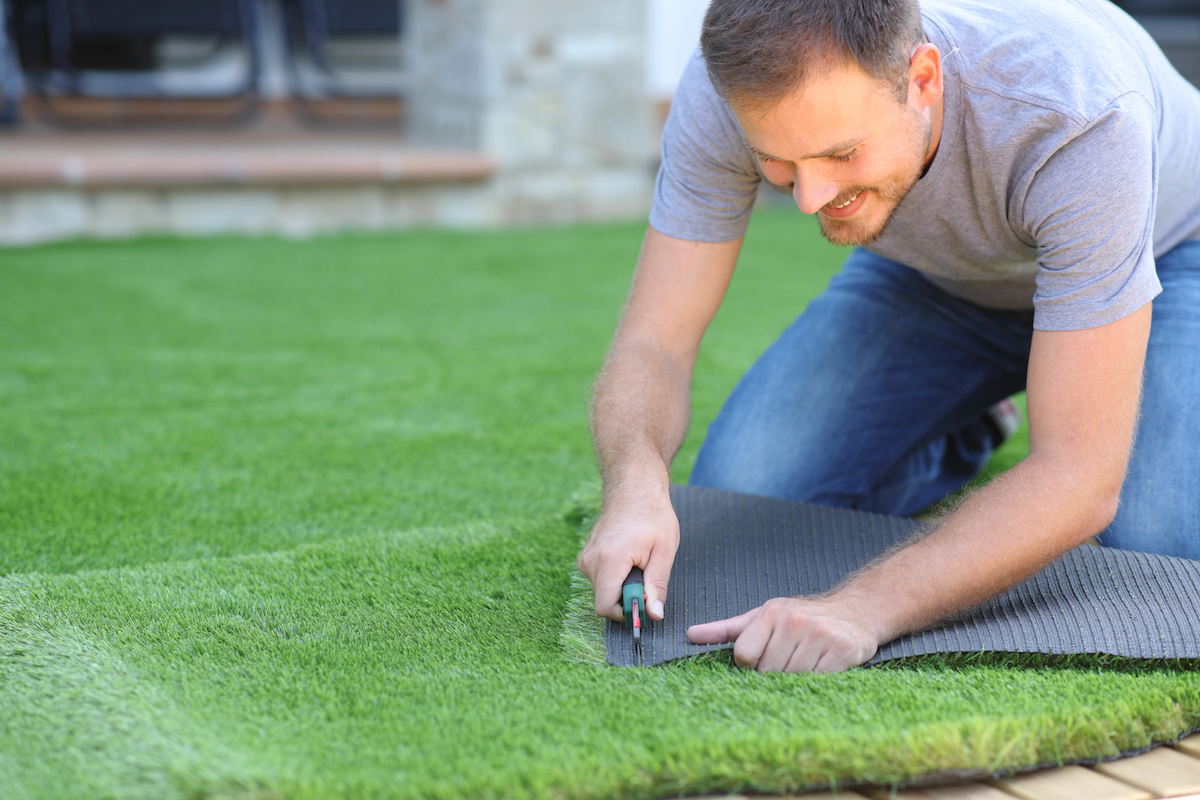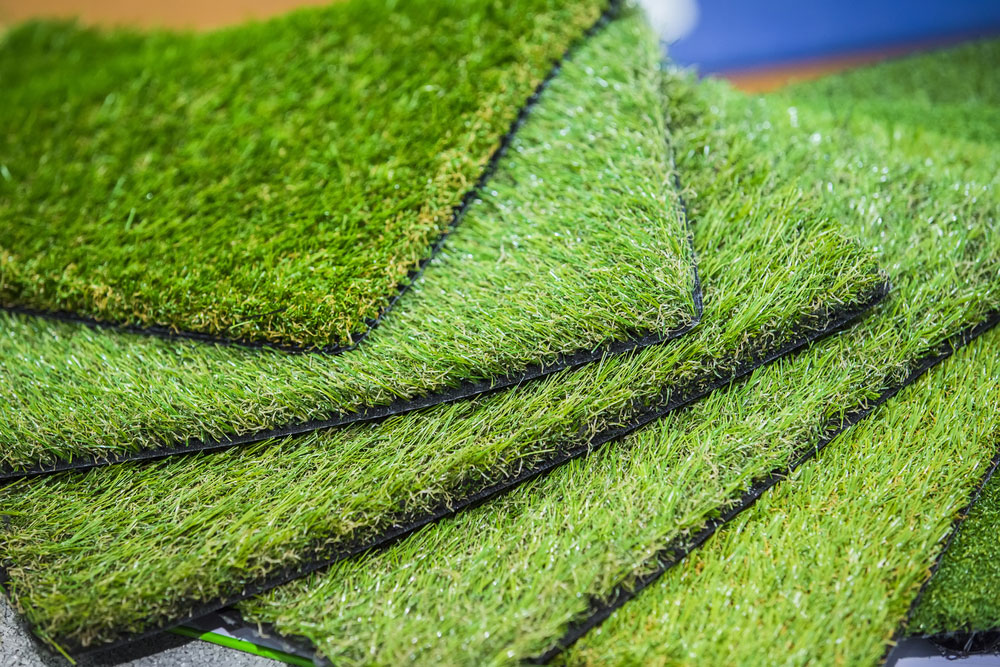Discover the Top Artificial Turf Companies Phoenix for Your House or Commercial Space
Discover the Top Artificial Turf Companies Phoenix for Your House or Commercial Space
Blog Article
Delve Into the Environmental Advantages of Opting for Artificial Lawn Solutions
The fostering of man-made turf solutions offers a compelling chance to address pushing environmental challenges. By considerably reducing water usage and reducing the application of unsafe chemicals, these options not just advertise sustainable landscaping yet also protect regional ecological communities.
Water Conservation Benefits
Among the most substantial benefits of synthetic grass is its ability to save water. Conventional turf yards require considerable irrigation, particularly in areas susceptible to dry spell or water limitations. In comparison, synthetic grass does not require watering, significantly lowering the overall need for water resources. This feature is especially helpful in deserts where water shortage is a pressing concern.
By getting rid of the demand for regular watering, synthetic grass contributes to sustainable landscape methods and helps mitigate the environmental influence of excessive water consumption. Additionally, the conservation of water extends to the decrease of overflow, which can cause soil erosion and river contamination.
Furthermore, the setup of synthetic turf enables communities and property owners to allot water resources extra efficiently, concentrating on vital uses such as alcohol consumption water and farming. The change in the direction of synthetic grass not only advertises liable water usage yet additionally lines up with broader environmental objectives targeted at preserving all-natural sources.
As areas significantly prioritize sustainability, the water preservation benefits of man-made turf offer an engaging situation for its adoption in business and household landscape design projects.
Decreased Chemical Usage
The transition to man-made lawn dramatically reduces the dependence on chemical treatments frequently made use of in all-natural lawn maintenance. Typical grass monitoring generally includes the application of pesticides, herbicides, and fertilizers to advertise development and control pests. These chemicals can present risks to human wellness, regional wild animals, and the environment, adding to dirt and water contamination.
On the other hand, synthetic grass removes the need for these hazardous substances. When mounted, it needs minimal upkeep, largely containing regular cleansing and occasional infill replenishment. This decrease in chemical usage not only benefits the instant setting however likewise adds to wider environmental stability. By decreasing the launch of artificial compounds into the ecosystem, synthetic grass advertises much healthier dirt and water systems.
Moreover, the lack of chemical overflow connected with synthetic grass installations helps secure neighborhood rivers from pollution, sustaining water life and keeping biodiversity. Turf installation phoenix az. As neighborhoods increasingly focus on sustainable methods, selecting synthetic turf offers a practical service that lines up with environmental conservation goals. With this change, homeowner can enjoy rich eco-friendly rooms without endangering eco-friendly wellness, paving the method for an extra sustainable future
Reduced Carbon Impact

Additionally, the setup of synthetic grass can result in substantial water conservation. Natural grass need significant amounts of water for irrigation, which not just includes in the carbon footprint connected with water removal and treatment but also strains local water resources. On the other hand, man-made turf needs very little maintenance, needing no watering, consequently dramatically reducing water usage and its associated energy prices.
Furthermore, the longevity of synthetic lawn adds to its lower carbon impact. With a lifespan of as much as 15 years or even more, the requirement for frequent replacements is lessened, resulting in much less waste and reduced energy consumption in manufacturing and throwing away standard turf alternatives. On the whole, artificial lawn offers a sustainable option for ecologically mindful landscaping.
Environment Preservation
Environment conservation is a crucial factor to consider in the dispute over directory landscape design selections, especially when contrasting synthetic grass to natural turf. All-natural grass lawns commonly require comprehensive upkeep, consisting of using plant foods, chemicals, and herbicides, which can detrimentally affect local ecosystems. These chemicals can leach into the dirt and waterways, hurting indigenous plants and animals and disrupting local environments.
Artificial grass removes the need for harmful chemicals, thereby safeguarding neighboring wild animals and preserving the integrity of surrounding communities. The setup of synthetic grass can find this lead to the conversion of former lawn locations into more biodiverse landscapes, such as pollinator gardens or native plant areas, which can sustain regional wild animals.
Eventually, the shift to synthetic turf not just conserves water and minimizes upkeep initiatives however also fosters an extra harmonious partnership between human tasks and the native environment, advertising habitat preservation in the process.
Long-Term Sustainability
Lasting sustainability is a vital element in assessing the advantages of fabricated turf over traditional grass lawns. One of the most substantial advantages of synthetic turf is its toughness; it can last as much as 15-20 years with minimal maintenance, whereas natural lawn requires regular reseeding and replacement. This long life decreases the need for consistent resources, such as water, fertilizers, and chemicals, which are necessary for maintaining a healthy and balanced turf lawn.
Furthermore, fabricated lawn adds to a reduction in carbon discharges connected with lawn care equipment. Traditional yards commonly require gas-powered mowers, trimmers, and blowers, all of which add to air contamination. Turf installation phoenix az. On the other hand, artificial turf eliminates the demand for such devices, promoting a cleaner setting
Furthermore, the production of man-made lawn progressively utilizes recycled materials, improving its sustainability profile. As makers adopt environment-friendly practices, the environmental impact of man-made turf proceeds to lessen.

Final Thought
The fostering of synthetic grass remedies offers significant environmental benefits, consisting of considerable water preservation, decreased dependence on hazardous chemicals, next and a lower carbon impact. Additionally, synthetic turf help in preserving all-natural habitats by decreasing land disruption and promoting long-lasting sustainability with making use of resilient materials. Collectively, these variables emphasize the capacity of fabricated turf to add favorably to ecological health and wellness and use a sensible choice to conventional landscaping practices in a progressively resource-conscious world.
In contrast, artificial lawn does not require watering, significantly decreasing the overall demand for water sources. By lessening the release of synthetic compounds right into the environment, man-made turf advertises much healthier soil and water systems.
Moreover, the setup of man-made lawn can result in substantial water conservation. In contrast, fabricated grass needs marginal upkeep, calling for no watering, thus significantly lowering water usage and its linked energy expenses.

Report this page